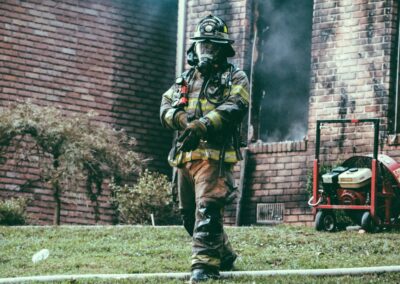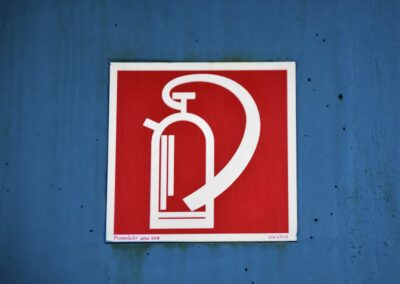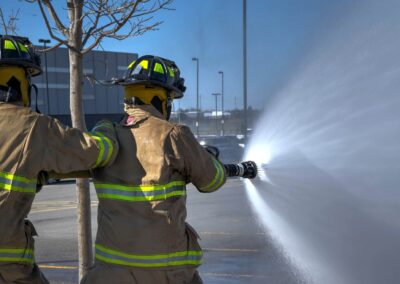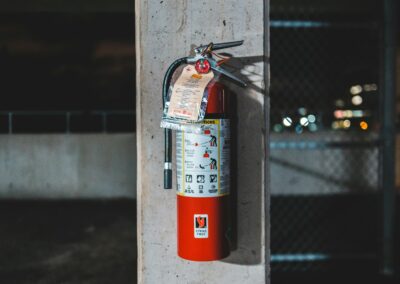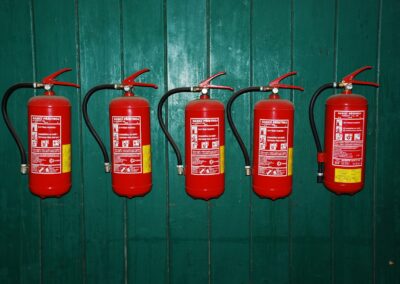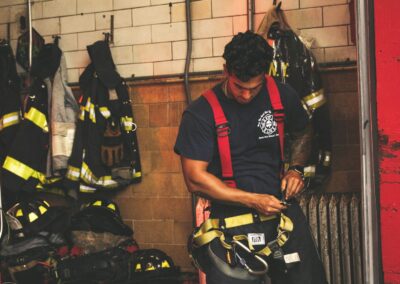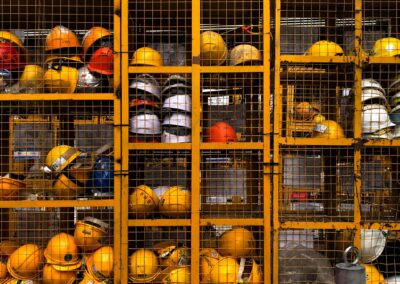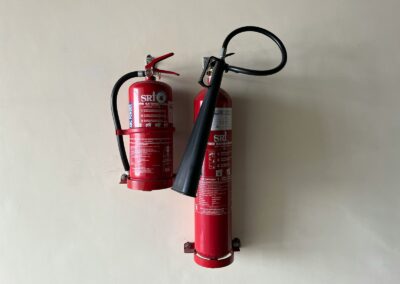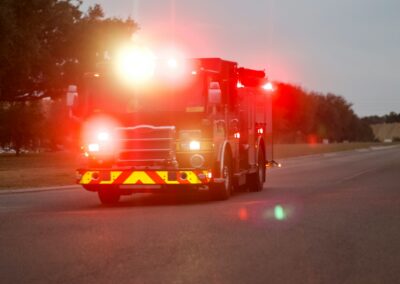The Importance of Public Awareness in Adopting Smart Fire Detection Systems
Understanding Smart Fire Detection Systems
The adoption of smart fire detection systems is crucial for enhancing safety in both residential and commercial buildings. These advanced systems utilize modern technologies such as AI, IoT, and real-time data analytics to detect fires more accurately and quickly than traditional fire alarms. In regions like Saudi Arabia and the UAE, where rapid urbanization and modernization are prevalent, the implementation of these systems is becoming increasingly important. Cities like Riyadh and Dubai are leading the way in integrating smart technologies into their infrastructure to ensure the safety of their residents and assets.
Smart fire detection systems offer several advantages over conventional fire alarms. They can detect smoke, heat, and other indicators of fire at an early stage, providing timely alerts to building occupants and emergency services. Additionally, these systems can differentiate between real threats and false alarms, reducing unnecessary evacuations and ensuring a more efficient response to actual emergencies. The integration of AI allows these systems to learn and adapt over time, improving their accuracy and reliability.
In Riyadh, the government’s commitment to building a smart city includes the widespread implementation of smart fire detection systems in new developments. These systems are connected to central monitoring stations that provide real-time data to emergency responders. Similarly, Dubai’s smart city initiatives prioritize the adoption of advanced fire detection technologies to protect its iconic skyscrapers and bustling commercial centers. By embracing these innovations, both cities are setting new standards for urban safety and resilience.
Raising Public Awareness: A Key to Adoption
The success of smart fire detection systems adoption heavily relies on public awareness and education. For these technologies to be effective, building owners, managers, and residents must understand their benefits and proper use. In Saudi Arabia and the UAE, government agencies, along with private sector partners, are actively working to raise awareness about the importance of smart fire detection systems.
Public awareness campaigns play a crucial role in educating the community about the advantages of smart fire detection systems. These campaigns highlight how these systems can save lives, reduce property damage, and improve overall safety. By showcasing real-life examples and success stories, they help to build trust and encourage wider adoption. In Riyadh, public service announcements and informational workshops are used to educate residents about the functionality and benefits of these systems.
Dubai’s approach to raising awareness includes leveraging digital platforms and social media to reach a broader audience. The city’s smart city initiatives often feature interactive sessions and demonstrations that illustrate how smart fire detection systems work. These efforts are complemented by collaborations with educational institutions to incorporate information about fire safety and smart technologies into their curricula. By fostering a culture of safety and technological awareness, Dubai is ensuring that its residents are well-informed and prepared.
Educational Strategies for Effective Implementation
Training and Education for Effective Use
Effective adoption of smart fire detection systems requires comprehensive training and education for all stakeholders. Building owners, facility managers, and residents need to be well-versed in the installation, maintenance, and operation of these systems. In Saudi Arabia and the UAE, training programs are designed to provide this essential knowledge and ensure that smart fire detection systems are used to their full potential.
In Riyadh, training sessions are conducted by fire safety experts and technology providers to educate building owners and facility managers. These sessions cover the technical aspects of smart fire detection systems, including installation procedures, system integration, and routine maintenance. By providing hands-on training and practical demonstrations, these programs ensure that participants can confidently manage and operate these advanced systems.
Dubai’s educational initiatives extend to residents and tenants of smart buildings. The city’s fire safety regulations mandate regular fire drills and training sessions to familiarize occupants with the smart fire detection systems installed in their buildings. These drills not only enhance preparedness but also empower residents to take an active role in ensuring their safety. Additionally, Dubai’s government collaborates with technology providers to offer certification programs for professionals involved in the design, installation, and maintenance of smart fire detection systems.
Leadership and Management in Technology Adoption
The successful adoption of smart fire detection systems also depends on strong leadership and effective management. Business executives, mid-level managers, and entrepreneurs play a vital role in championing these technologies and driving their implementation. In Saudi Arabia and the UAE, leadership in both the public and private sectors is crucial for promoting the widespread adoption of smart fire detection systems.
In Riyadh, government leaders set the tone by incorporating smart fire detection systems into building codes and regulations. By mandating the use of these systems in new constructions and major renovations, they ensure that safety standards are met and that the latest technologies are utilized. Private sector leaders in Riyadh also recognize the importance of investing in smart fire detection systems to protect their assets and enhance their reputation for safety and innovation.
Dubai’s leadership in smart technology adoption is driven by its vision to become a global smart city leader. Government officials, business executives, and industry experts collaborate to create a supportive ecosystem for smart fire detection systems. This collaborative approach ensures that best practices are shared and that all stakeholders are aligned in their efforts to enhance safety. By fostering a culture of innovation and continuous improvement, Dubai’s leaders are paving the way for a safer and more resilient city.
Conclusion: The Path to Safer Cities
The adoption of smart fire detection systems is essential for enhancing safety in modern cities. In regions like Saudi Arabia and the UAE, where rapid urbanization and technological advancement are priorities, these systems play a critical role in protecting lives and property. Public awareness and education are key to ensuring that these technologies are widely adopted and effectively used.
By raising awareness through public campaigns and educational initiatives, cities like Riyadh and Dubai are leading the way in promoting smart fire detection systems. Training and education programs equip stakeholders with the knowledge and skills needed to implement and maintain these systems. Strong leadership and effective management further drive the adoption of these technologies, ensuring that safety remains a top priority.
As cities continue to grow and evolve, the integration of smart technologies will become increasingly important. By embracing innovations such as smart fire detection systems, Saudi Arabia, the UAE, and other leading regions can create safer, more resilient urban environments. The commitment to public awareness, education, and strong leadership will pave the way for a future where advanced technologies enhance the safety and well-being of all residents.
—
#SmartFireDetectionSystems #PublicAwareness #Education #TechnologyAdoption #ModernTechnology #BusinessSuccess #LeadershipSkills #UAE #SaudiArabia #Dubai #Riyadh #AI #Blockchain #Metaverse #GenerativeAI


